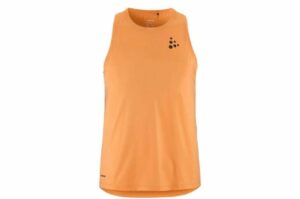Teaching technique in Montreal
Runner and writer Malcolm Balk teaches the Alexander technique in Montreal, helping runners find a new way to run and improve.
“What gets us into trouble is not what we don’t know, it’s what we know for sure that just ain’t so.” – Mark Twain
People and runners are creatures of habit, whether it be the cup of coffee we have to have or the running route we religiously slog through every day. Patterns, habits that sometimes can lull many of us into not questioning what or how we are doing things or why – perhaps stopping us from trying something new.
There is the current minimalist movement with people tossing their running shoes for bare feet or barely much more. There is also something that arrived before this idea that works more on the body and how we use it to run. It is called the Alexander Technique.
The Technique is not a therapy, but more a system of re-education. Lessons in the Alexander Technique are said to enable you to recognize harmful postural habits that may be causing you stress and pain. The next stage is to learn how to overcome those habits and find a new balance of mind and body, to move gracefully without stiffness, be focused with less strain, and to breathe easily. This can then help improve your running as you move and run more efficiently.
I knew little about the Alexander Technique but recently bumped into someone who does, he teaches it.

Malcolm Balk
Fit looking and smooth-headed Malcolm Balk teaches the Alexander technique in Montreal. A musician as well as a runner Malcolm was attracted to the technique to deal with tension issues from playing the cello. Being a runner, Malcolm soon put the two together and developed the Art of Running workshops, which he says have been enjoyed by runners all over the world.
Malcolm started running in the mid-1970’s during the running boom. He says he started with road races and then worked up to his first marathon where he says his first mile was under 5 minutes, but his last was just over 14. Despite setbacks and a learning curve Malcolm kept running and even ran track where the elusive 2-minute barrier for the 800m race always eluded him.
Malcolm is still running and his discovery of the Alexander Technique may have benefited him, it at least has not slowed him down. If Malcolm is using his technique it seems to be working. In 2012 he ran the Montreal Oasis half-marathon in 1:22 for the 55-59 age group and went under 18 minutes for a 5k. Malcolm has even gotten certification as a Level 4 running and his running times have made him the age-group Canadian half-marathon champion in 2011 and 2012. Not too shabby.
Malcolm slowed down enough so I could ask him a few questions.
How can runner’s benefit from the Alexander technique?
“Runners can benefit from the Alexander Technique in many ways. For me initially, it helped increase my kinesthetic IQ. I learned to recognize when something wasn’t working properly before it was too late and I’d injured myself. It helped me learn how to make crucial adjustments in how I ran early enough to prevent things from going off the rails. It also made me much more aware how how I carried out my day to day activities like sitting, walking, standing and bending, activities we’ve done for ever but which are often performed with a great deal of unnecessary tension and strain. Learning to ‘think in activity’ meant that I no longer ran like I sat, which if you’ve ever seen how hockey players sit you know why this might have helped. Finally I think the AT provides a runner with the tools to help recovery, something which is more and more crucial to us age category warriors!!”
How long does it take someone to benefit from the technique or feel the benefit?
“Part of my specialty is to blend what I’ve learned as a runner and coach with my training as an AT teacher to help runners improve their form quickly and efficiently and I have seen some people benefit a great deal after a 4-hour workshop. However most runners will see improvements after 10 lessons or so.”
Does the Alexander technique work with someone who is transitioning to minimal running shoes?
“I sometimes refer to the AT as ‘organized common sense.’ So while it’s always made sense to me to run in less shoe, it takes time to make the transition, longer for some than others. A common mistake I see runners do is to make barefoot running a bit of religion and think that wearing an ‘old-school’ shoe is almost cheating, not ‘real running.’ They should see the shoes Haile Gebrselassie trains in…they’d be shocked. So the AT is not just about the body but concerns what Alexander called the “Use of the Self” That includes our attitudes, emotional responses, belief systems and ways of thinking about things….a bit of a mouthful I realize but as human beings who run, that’s what we bring to the starting line.”
What are your personal running goals for 2013?
“I am going to make another good stab at breaking 1:20 in this April’s Scotia Bank half marathon. And last year I came pretty close to going under 60 minutes for 10 miles so I’d like to give that a go as well.”
Malcolm Balk is the author of two books: Master the Art of Running and Master the Art of Working Out. See the publications page for more information. In addition to maintaining a private practice in Montreal, Malcolm also teaches in Plattsburgh, New York. Art of Running workshops are offered world wide.
Running and life is all about adapting, changing and challenging oneself. Run on Malcolm.
Do you have a story to tell?
legsnlungs@hotmail.com
See you on the roads or in the blogosphere.

